Automotive
/Home & Leisure

Federal regulators propose new plan for evaluating self-driving vehicle tech
WASHINGTON — Federal regulators on Friday announced plans to further evaluate the safety of vehicles equipped with automated driving systems, a potential precursor to nationwide standards for rapidly advancing self-driving technology.
The ADS-equipped Vehicle Safety, Transparency, and Evaluation Program, known as AV STEP, would create a ...Read more
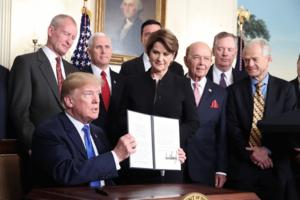
Why it's impossible to make a car without China, regardless of tariffs
WASHINGTON — Even as the Trump and Biden administrations have taken and maintained aggressive stances on reducing China's role in major U.S. manufacturing sectors, auto industry veterans say it remains impossible to build cars and trucks without help from the Far East.
That will likely stay true even if Republican President-elect Donald Trump...Read more

Racy Honda Prelude coupe returns to US as a hybrid
The sporty Honda Prelude is back.
The Japanese automaker announced the return of the iconic two-door coupe to North America with a concept that closely resembles production plans. The Prelude is scheduled to join the brand’s lineup late next year as a 2026 model. Prelude first washed up on U.S. shores in 1979 and was discontinued in 2001 ...Read more

2024 Mercedes Benz E-class has the appeal sedan lovers demand
With the 2024 models phasing out of the review fleet and 2025s arriving daily, Mercedes made a special request to get the E450 in for a classic luxury review. We enjoyed it very much.
Put your seat back and imagine the year is 1965, with big-body muscle cars all the rage while the length and engine combination demanded ultra plush comfort. We ...Read more

Auto review: A New battery-electric flagship for Volvo: the 2025 EX90
Designers always spend the most time working on exterior car designs to attract buyers, sometimes with disastrous results. But it’s the interior that matters more, as that’s what any car owner and their family and friends is going to look at the most. That dichotomy comes into play on the 2025 Volvo EX90, Volvo’s new battery-electric ...Read more
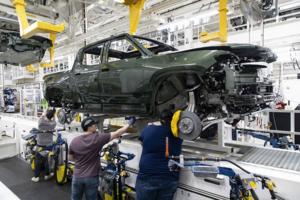
UAW reaches secret deal with Rivian to make unionizing easier
In recent months, the United Auto Workers reached an agreement with Rivian Automotive Inc. that would make it easier to unionize the company’s workforce — contingent on the electric-vehicle maker ever reaching profitability.
Under Rivian and the UAW’s confidential pact, the automaker would adopt a neutral stance toward efforts to organize...Read more

GM, ChargePoint partner to install up to 500 ultra-fast charging ports in US
General Motors Co. and ChargePoint, a leading charging company, are partnering to install up to 500 ultra-fast charging ports in the United States, the companies said Wednesday.
The companies didn't specify where the stations will be but said they would go in "strategic locations." The locations should be open and available to the public before...Read more
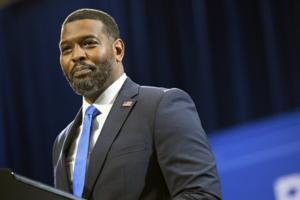
Biden administration grants key waiver for California auto rules, EV mandate
WASHINGTON — The Biden administration finalized a decision Wednesday allowing California to enact influential and long-planned vehicle emissions regulations that set an effective 100% electric vehicle requirement for one-third of the U.S. auto market by 2035.
The regulations — if they survive the significant administrative and legal ...Read more
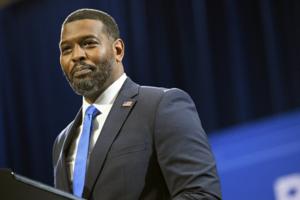
Biden administration grants key waiver for California auto rules, EV mandate
WASHINGTON — The Biden administration finalized a decision Wednesday allowing California to enact influential and long-planned vehicle emissions regulations that set an effective 100% electric vehicle requirement for one-third of the U.S. auto market by 2035.
The regulations — if they survive the significant administrative and legal ...Read more

Late surge will lift 2024 auto sales to five-year high, Cox projects
Analysts at Cox Automotive, an automotive services company, expect new vehicle sales in the United States for 2024 will come in at just over 15.8 million, beating a previous forecast and marking the best year since 2019.
After a strong fourth quarter, automakers are expected to post sales of 15.85 million in 2024, up 2.3% from 2023's 15.55 ...Read more

Waymo says it's bringing its fully driverless robotaxis to Miami. But are they safe?
Waymo, the self-driving vehicle company owned by Google parent Alphabet, has announced it’s bringing its driverless robotaxis to Miami amid wide-ranging questions about their safety and an ongoing federal investigation into collisions involving its cars in cities where the service is already operating.
In a statement, the company said it will...Read more
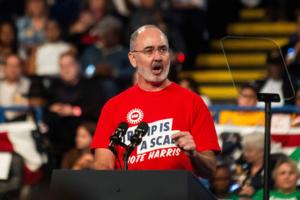
Judge orders UAW officials to produce records sought in Shawn Fain corruption probe
A federal judge Monday ordered United Auto Workers officials to stop withholding documents sought by a watchdog investigating claims of wrongdoing by President Shawn Fain and other senior leaders.
U.S. District Judge David Lawson issued the order three weeks after hearing arguments amid a dispute that has delayed by months attempts by the ...Read more
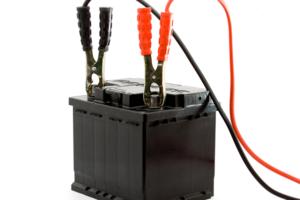
Motormouth: Problem may stem from a weak or dying battery
Q: My 2023 GV80 has a lot of bells and whistles and one of them is the engine turning off at stop lights to save gas. I noticed that the feature had stopped working so I took the vehicle back to the dealership. Two hours after my appointment time, it was returned to me with the statement that there was no error code and there were many things ...Read more
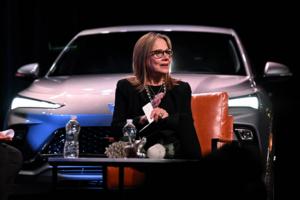
What GM's exit from robotaxi space says about limits in race for AV leadership
Supremacy in the race to self-drive an electrified auto industry is harder than the masters of Detroit and Silicon Valley figured, proving that what players do is far more important than what they say.
General Motors Co. showed as much this week with confirmation it’s quitting Cruise LLC's robotaxi program after pumping $10 billion into it ...Read more
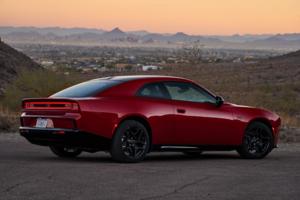
Auto review: Green and mean: the subversive 2024 Dodge Charger Daytona EV
Feast your eyes on the only new full-size coupe offered for sale in America, the 2024 Dodge Charger Daytona. Its bodyshell will be offered with four doors next year. Until then, it will only have two. But here’s the thing. While the 2024 Charger Daytona replaces the 2023 Charger and Challenger in Dodge showrooms, it comes purely as a battery ...Read more
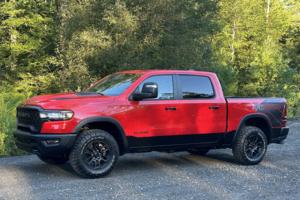
2025 RAM Rebel is ready to tackle everything
The 2025 RAM Rebel has hit the market and this truck is large and in charge. With a base price exceeding $64K, the RAM Rebel 1500 Crew Cab 4×4 is job-site ready, off-road ready — heck, its ready for anything!
It's powered by the 2025 3.0-liter Hurricane Straight-Six Turbo (SST) standard output engine, which provides 420 horsepower to the ...Read more

Auto review: Dodge Charger Daytona is an uncaged, tech-tastic beast – tethered to a plug
PHOENIX — Jaguar introduced its first electric vehicle with an ad featuring an elevator-full of gender-bending models. Dodge’s first EV ad boasted loud engine noises, tire smoke and a taunt.
“We’re building electric vehicles to save our planet ... FROM ALL THOSE LAME, SLEEK-LOOKING, SELF-DRIVING SLEEP-PODS EVERYONE ELSE KEEPS POLLUTING ...Read more
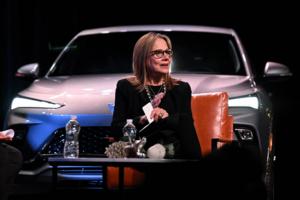
Barra: Trump tariff threat would have big impact but is 'part of the negotiation'
DETROIT — General Motors Co. CEO Mary Barra acknowledged Wednesday that higher tariffs on goods from Mexico and Canada under the incoming Trump administration "could have a very substantial impact" on the automaker.
But she added that President-elect Donald Trump's recent statements calling for 25% tariffs on goods imported from the two ...Read more
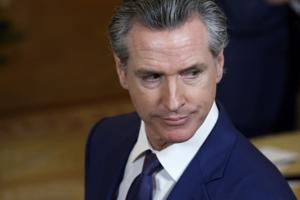
Why Newsom's electric vehicle mandate is in trouble
California’s electric vehicle ambitions are facing a reality check.
Sales growth has stalled as potential buyers balk at high sticker prices and unreliable public charging. The EV market will take an additional hit if President-elect Donald Trump follows through on vows to scuttle federal EV tax credit subsidies for buyers and slap tariffs on...Read more
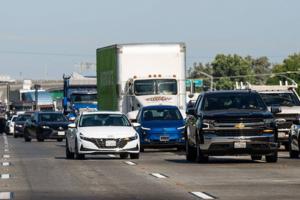
Top auto lobby warns states of 'unachievable' California emissions rules
WASHINGTON — The nation's top automotive lobbying group on Wednesday encouraged states to retreat from pledges to adopt California's influential, strictest-in-the-nation tailpipe emission regulations.
The Alliance for Automotive Innovation, which represents all major U.S. automakers except for Tesla Inc., said in an open memo that "it's gonna...Read more
Popular Stories
- 2024 Mercedes Benz E-class has the appeal sedan lovers demand
- Why it's impossible to make a car without China, regardless of tariffs
- Racy Honda Prelude coupe returns to US as a hybrid
- Auto review: A New battery-electric flagship for Volvo: the 2025 EX90
- Federal regulators propose new plan for evaluating self-driving vehicle tech






